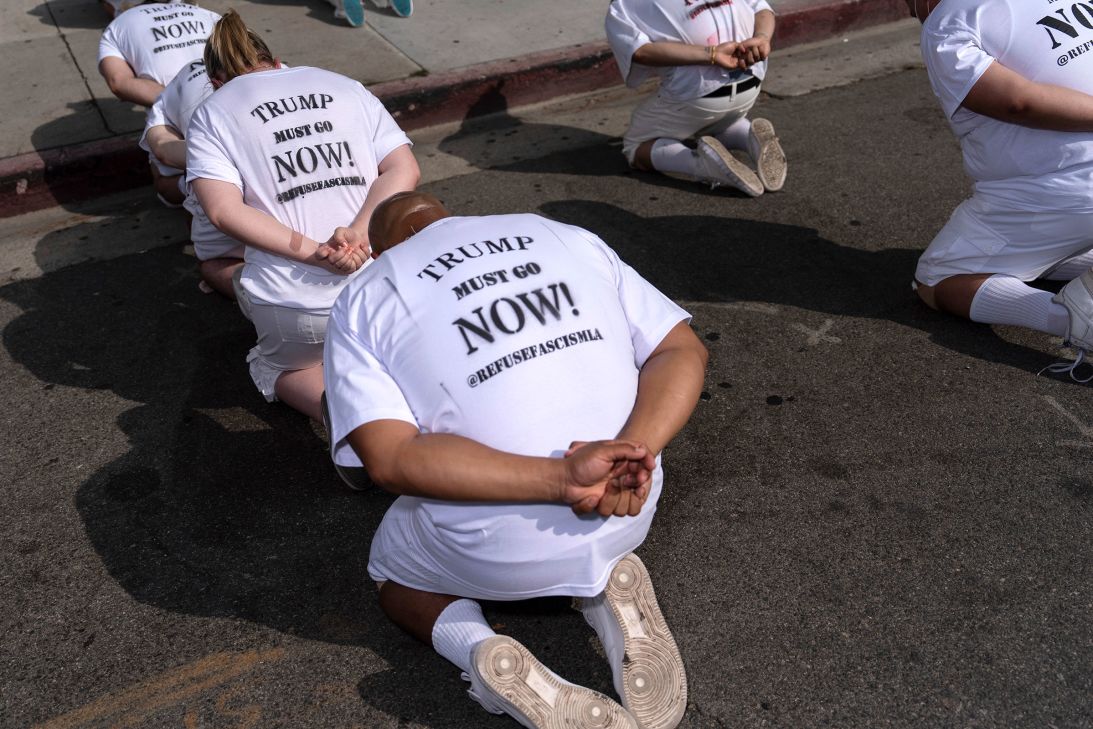BREAKING: A September 8 Supreme Court ruling has sent shockwaves through immigrant communities, as it now allows law enforcement to consider a person’s ethnicity in immigration stops. This controversial decision raises fears among legal immigrants and non-White citizens about potential racial profiling and unjust detentions.
Cesar, a green card holder and student at Georgetown University, expressed his anxiety: “Now I have to carry my documents all the time. And that is very scary.” He is not alone in this sentiment; many immigrants are grappling with the implications of the ruling, which critics argue endorses racial profiling.
The Supreme Court’s ruling overturned previous decisions that protected individuals from being stopped based solely on four characteristics: race, language, presence in immigrant-heavy areas, or employment in jobs typically held by immigrants. This legal shift is seen as a green light for law enforcement to conduct what are termed “roving” immigration patrols, particularly in areas like Southern California, where such practices have already been noted.
Legal experts warn that this decision will have broad implications. “This is going to affect everyone,” said Jennifer Bade, a Boston-based immigration attorney. She emphasized the danger of creating a “show-your-papers” culture where innocent activities, such as speaking Spanish or looking Latino, become grounds for suspicion.
The impact is already being felt acutely. Andrea, a Venezuelan woman in Washington, DC, shared her fears: “It makes race itself a pretext for suspicion.” She recounted a recent experience in which she and her friends chose not to speak Spanish while walking on the National Mall to avoid drawing attention from law enforcement.
The Department of Homeland Security celebrated the ruling as a victory for law enforcement and public safety. Spokesperson Tricia McLaughlin stated that authorities will continue to target “criminal illegal aliens” to ensure community safety.
However, many are questioning the implications of this stance. Immigrants, including those with valid documentation, now feel compelled to carry proof of their status at all times. Francisco Moreno, executive director of the Council of Mexican Federations in Los Angeles, said, “I carry my citizenship card because I don’t know if they’re going to stop me at some point.”
The ruling has reignited fears reminiscent of past racial profiling incidents, which have historically plagued minority communities in America. Critics argue that this decision not only legitimizes but also expands the scope for racial profiling, creating an environment of heightened anxiety and uncertainty.
As the implications of the Supreme Court’s decision unfold, advocates are urging individuals to stay vigilant. The ruling serves as a stark reminder of the ongoing challenges faced by immigrant communities in the U.S., as they navigate an increasingly hostile environment.
This decision is a developing story with significant repercussions across the nation. As communities brace for potential enforcement actions, awareness and preparedness are becoming crucial for immigrants and their allies. Stay tuned for further updates on this urgent issue.
